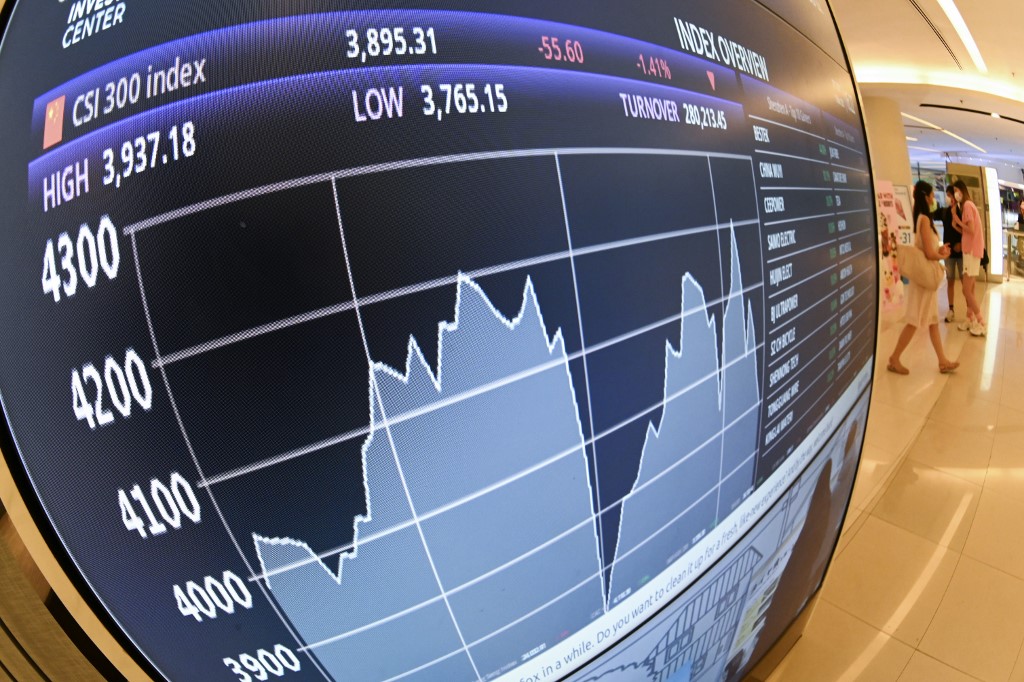Asian stocks suffered on Tuesday with the Omicron coronavirus variant, China’s property market troubles and looming rate hikes casting a huge shadow over trading floors.
MSCI’s broadest index of Asia-Pacific shares outside Japan was down 0.73%, as the Asian Development Bank (ADB) trimmed its growth forecast for developing Asia, reflecting risks brought on by the new virus variant.
China’s CSI300 index dropped after health authorities in Tianjin detected the country’s first Omicron case and Hong Kong’s Hang Seng Index weakened, also dragged down by persistent concerns over the health of China’s property sector.
This all comes with the US Federal Reserve scheduled to announce its latest interest-rate decision on Wednesday, followed by the European Central Bank (ECB) on Thursday.
Also on AF: Chinese Province To Move Data Centres Under The Sea
After last week’s strong performance, stocks have stumbled this week as Britain became the latest country to boost its response to the Omicron strain and China reported its first case – which many fear could throw the global recovery into jeopardy.
Tracking those fears, Tokyo fell, as did Seoul and Sydney. The benchmark Nikkei 225 index dropped 0.73%, or 207.85 points, to 28,432.64, while the broader Topix index lost 0.22% or 4.32 points at 1,973.81.
Hong Kong and Shanghai both closed with losses, dragged down by continued woes in the Chinese housing market sparked by the spectacular fall from grace of property giant Evergrande.
Developer Shimao became the latest firm to be pulled into the whirlpool on Tuesday as its share price plunged to its lowest level in a decade.
And Monday’s decision by Chinese start-up SenseTime to postpone a $767 million initial public offering in Hong Kong also spooked markets, highlighting the risks investors face from competing sanctions as relations between Washington and Beijing sour.
Omicron’s Economic Impact
The Hang Seng Index was down 1.33%, or 318.63 points, to 23,635.95. The Shanghai Composite Index was down 0.53%, or 19.56 points, to 3,661.53, while the Shenzhen Composite Index on China’s second exchange fell by 0.14%, or 3.66 points, to 2,558.25.
Coronavirus fears have continued to plague investors, with the Asian Development Bank (ADB) warning that the Omicron variant could have a “substantial” economic impact as it trimmed its 2021 and 2022 growth forecasts for developing Asia.
While the region was expected to sustain a “strong rebound” and keep inflation at manageable levels, the emergence of Omicron had brought “additional uncertainty,” the ADB said.
Despite fears that the Omicron variant is leading to another round of government restrictions that will slow economic growth, stock markets have held up well and rebounded fast – the S&P 500 last week enjoyed its strongest week since early February.
There is plenty for investors to be nervous about ahead of those central bank meetings when traders are poised for policymakers to signal the pace of interest rate rises needed to curb inflation.
But investors appear happy to ‘buy the dip’ and move back into stocks, although volumes have also been lower in recent weeks with many traders reluctant to take on new positions before year end after a very strong rally in 2021.
The dollar edged marginally higher ahead of the upcoming meetings.
British PM’s ‘Tidal Wave’ Warning
“Volatility will remain elevated throughout all of [these] decisions from the Fed, ECB, and BoE,” Edward Moya, a senior analyst at OANDA, said.
Fears over the Omicron variant of Covid-19 were heightened after British Prime Minister Boris Johnson warned of a “tidal wave” of new cases, and the World Health Organization said it poses a “very high” global risk, with some evidence that it evades vaccine protection.
Oil futures reversed earlier falls as OPEC predicted in its monthly report that the Omicron variant’s impact on fuel demand would be mild.
Brent futures were 58 cents, or 0.77% higher at $74.98 a barrel, while US West Texas Intermediate (WTI) crude increased 54 cents, or 0.76%, to $71.82.
Oil prices remain way off levels above $85 a barrel last seen in mid-October before the variant was discovered.
Key figures around 0820 GMT
Tokyo > Nikkei 225: DOWN 0.7% at 28,432.64 (close)
Hong Kong > Hang Seng Index: DOWN 1.3% at 23,635.95 (close)
Shanghai > Composite: DOWN 0.5% at 3,661.53 (close)
New York > Dow: DOWN 0.9% at 35,650.95 (close)
London > FTSE 100: UP 6.3% at 7277.23
- Reuters & AFP with additional editing by Sean O’Meara
Read more:
ADB Cuts Developing Asia Growth Forecasts Amid Omicron Fears
Mass Covid Shutdowns in China Manufacturing Hub
























